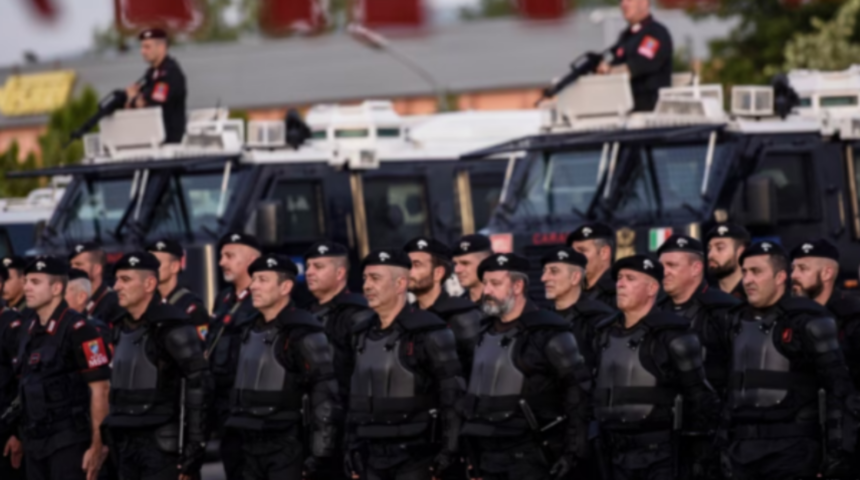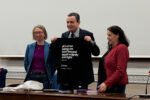NATO and the European Union are deploying resources to Kosovo for the regular parliamentary elections on February 9th.
The Western military alliance, NATO, announced that it has sent an additional 200 Italian soldiers to reinforce its peacekeeping mission in Kosovo, KFOR, which now has about 4,000 troops, down from 50,000 in 1999 when the mission was first deployed to the country.
KFOR stated that it is strengthening its presence in Kosovo, with the Italian Infantry Brigade “Sassari” carrying out “a series of activities in conjunction with KFOR troops.”
This force “will be deployed in response to any significant security developments, including during the election period,” KFOR said.
A few days earlier, NATO’s Secretary General, Mark Rutte, expressed concerns about the election period in Kosovo. He stated that he is in contact with both Kosovo and Serbia to ensure there is no destabilization during the parliamentary elections on February 9th.
The parliamentary elections in Kosovo will also be monitored by the European Union, which has announced a mission consisting of 100 observers.
Nathalie Loiseau, a French member of the European Parliament, will lead the EU mission for election monitoring. She stated that this mission highlights “the EU’s continued support for Kosovo to further strengthen its democratic governance.”
She added that the February 9th elections will demonstrate “the plurality of Kosovo’s political landscape.”
This will be the seventh EU observer mission for elections in Kosovo.
The election campaign, which began on January 11th, is being characterized by hate speech and provocative political rhetoric, according to non-governmental organizations in Kosovo monitoring the process.
In the February 9th elections, 28 political entities and one independent candidate are competing.
The four candidates for Prime Minister—Albin Kurti from the Self-Determination Movement, Bedri Hamza from the Democratic Party of Kosovo, Lumir Abdixhiku from the Democratic League of Kosovo, and Ramush Haradinaj from the Alliance for the Future of Kosovo—have focused their campaign efforts on domestic policies and mutual accusations during the early days of the campaign.
These elections are seen by many as a test for Prime Minister Albin Kurti and his party, as tensions are high with the Serbian minority and neighboring Serbia.
None of the candidates have emphasized the normalization of relations with Serbia as their main commitment.
Recently, tensions have increased due to actions taken by the Kosovo authorities in municipalities with Serbian populations. On January 15th, Serbian institutions were closed in ten municipalities in Kosovo, as authorities in Pristina stated that these institutions were illegal.
However, the closure of several parallel Serbian municipalities, as well as postal and tax offices in ten municipalities south of the Ibar, has been described as controversial.
This is because the Basic Prosecutor’s Office in Pristina declared on January 15th that it had not authorized the Kosovo Police to carry out this operation, as there was no official request.
The closure of such institutions by Kosovo authorities began in early 2024.
In addition to the temporary municipal bodies and their public enterprises, the Serbian Post in the north, the Postal Savings Bank, the Treasury of the National Bank, the Directorate of the Pension and Disability Insurance Fund, the Administrative District of Mitrovica, and others have been closed. Primarily, only educational and healthcare institutions have continued to function, operating within the Serbian system in the Serb-majority areas.
Serbs in northern Kosovo enjoy the support of Belgrade, which has funded parallel structures there and supported Serbian citizens through pensions and other benefits.
The United States and the European Union have opposed many of Pristina’s actions in northern Kosovo, with the EU describing them as uncoordinated.
The European Union has urged Kosovo and Serbia to normalize their relations within the framework of the Brussels Dialogue, stating that normalization is a prerequisite for the countries’ advancement towards European integration.







